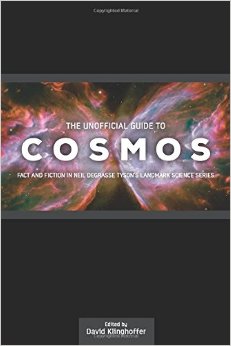 Faith & Science
Faith & Science
Let Us Bow Our Heads and Pray: Sunday Is Carl Sagan Day
Well, maybe not pray, but certainly adopt a suitably worshipful attitude while venerating an icon of materialism. Back when the new Cosmos series with Neil Tyson was getting ready to air, Kimberly Winston of Religion News Service noted the existence of a special day of which I was not previously aware. November 9, this upcoming Sunday, is celebrated by "atheists, agnostics, humanists and other "nones’" as Carl Sagan Day, eagerly anticipated as an occasion to renew their commitment:
Humanists are especially eager. They claim Sagan as their own, and see in the "Cosmos" series — a multipart journey to the outer reaches of our universe — and in his dozen books a vibrant strain of their own philosophy. That philosophy favors reason over religion and holds human beings as both good and responsible for the Earth’s plight.
"In my eyes, Carl Sagan represents the ‘yes’ and possibility of Humanism rather than just the ‘no’ and the disagreement," said Chris Stedman, assistant Humanist chaplain at Harvard University and a blogger for Religion News Service. "For that reason I think he occupies a special place among humanists and atheists."
In fact, Sagan — who died of a blood disorder in 1996 at age 62 — is so important to Stedman, 26, he has the scientist’s words inked on his right arm. "For small creatures such as we, the vastness is bearable only through love," it says.
Some groups have named awards for Sagan, while others celebrate "Carl Sagan Day" on his Nov. 9 birthday. Sunday Assembly, a growing movement of nonbelievers, has begun weekly meetings with his quotes. Some nonbelieving parents have named their children after him.
To call these true believers, meeting in Sunday Assemblies, "nonbelieving" seems like not quite the right choice of an adjective.
Admittedly the Saganists sound like upholders of a gentle creed, not inclined to berate other people who disagree with them. The same can’t be said of a related strain in our culture that regards anything crowned by the title "science" with a zeal shading over into fanaticism — one that would embarrass Carl Sagan himself.
In a column this week in the New York Times, Frank Bruni lashed unbelievers in the scientistic faith, including those of us with a "woefully insufficient gratitude for the ways in which science has advanced our country and elevated our lives."
He commends Bill Nye’s new book: "It’s called ‘Undeniable,’ because, yes, there are many Americans who still deny what Darwin and other scientists long ago proved." Note the tone of outrage in this journalist’s voice. He decries a "fickle approach to science," among those politicians and members of the public lacking a "proper regard for science." Bruni begins one sentence, "If science held the sway it should…" And another, "And with the right fealty to science…"
The sway! The fealty! He means the right to rule, and to be worshiped.
Science, increasingly, represents a cultural fault line. Skeptics on Darwinian theory and, yes, on the causes and expected impact of climate change, make scientific judgments for ourselves. We first read, study, think, and then decide. The orthodox are more comfortable bowing out of exercising their critical faculties. Piously commemorating Carl Sagan is symptomatic. One side regards critical thinking as a virtue. The other as a vice.
On one side are those like Frank Bruni who see a white lab coat as a symbol of infallibility. They angrily demand that everyone else join them in worship.
 On the other side are people like, well, us… or, I’ll mention him because I was just reading his excellent new article in Commentary ("The Imprudence of the ‘New Science’"), journalist Andrew Ferguson.
On the other side are people like, well, us… or, I’ll mention him because I was just reading his excellent new article in Commentary ("The Imprudence of the ‘New Science’"), journalist Andrew Ferguson.
Mr. Ferguson contributed a wonderful cover story to The Weekly Standard last year on the witch-hunt directed at ID-sympathizing atheist philosopher Thomas Nagel. He now writes about the bogus "New Science" that claims to apply the rigor of physical science to understanding the eccentric fluctuations of human behavior and human nature.
Ferguson’s irreverence, his utter lack of a "proper regard for science," an absence of the "right fealty to science," exemplifying a "fickle approach to science," would strike a guy like Bruni as absolutely outrageous.
Facing each other across the fault line are the real skeptics, on one hand, and the rigidly orthodox on the other. The latter, we know, are primed to persecute, censor, and silence.
For a taste of real skepticism, as applied to the most recent expression of Sagan’s take on the cosmos, episode by episode, see our new book The Unofficial Guide to Cosmos: Fact and Fiction in Neil deGrasse Tyson’s Landmark Science Series. Consider giving it as a gift. What more appropriate way could there be to say "Happy Sagan Day!"
